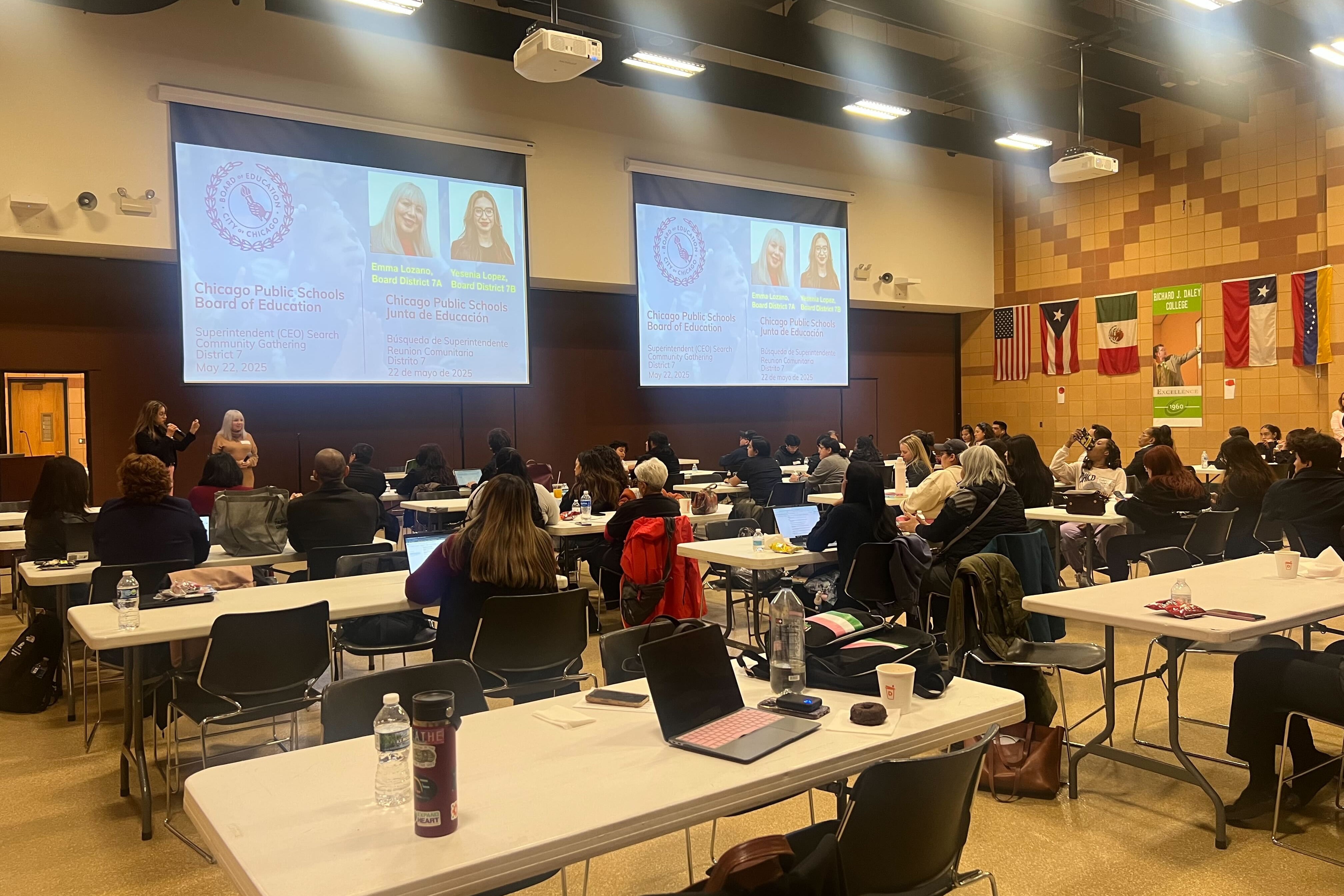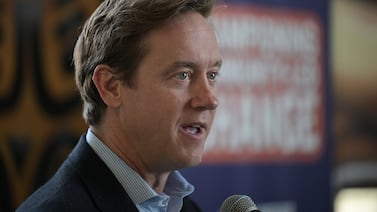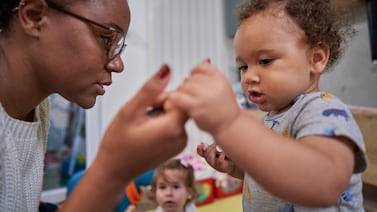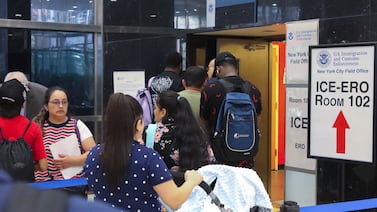Sign up for Chalkbeat Chicago’s free daily newsletter to keep up with the latest education news.
The next chief of Chicago Public Schools should prioritize high-quality instruction, make schools feel safe, and have strong communication skills, said respondents in a recent survey conducted as part of the Chicago Board of Education’s search process for the district’s next leader.
Zencity — a company focused on community engagement and research — conducted an analysis of about 2,700 respondents that it recruited on its own, and separately looked at results of another 880 people who received the survey from a board member or Alma Advisory Group, the firm that CPS has hired to conduct the CEO search.
The survey, conducted between May and June, is one part of the board’s novel community engagement process as it searches for a replacement for former CPS CEO Pedro Martinez, who left CPS last month.
The mayor has typically chosen a CEO to lead CPS. Now, the district’s first partially elected, partially appointed board has taken over that responsibility. The board passed a resolution in April to launch a community engagement process, promising to center the public’s feedback in its choice for CPS’s next leader. It also passed a resolution requiring the CEO to hold a superintendent’s license, which has not been required since 1995 when the district went under mayoral control.
“Historically, CPS has not done a great job of involving community input and desire in a meaningful way,” said board member Jessica Biggs, who is the chair of the board’s transition team. “There are a lot of things that [the board has] disagreed on, but we were all really clear and aligned that we wanted our [CEO search] process to be centered around community engagement and dialogue.”
The board held 11 community feedback sessions and, separately, focus groups and panel discussions — resulting in conversations with more than 1,400 people, said Monica Rosen, CEO of Alma Advisory Group, which CPS hired to run the CEO search process, at a recent board meeting.
The public feedback will help the district tweak the scope of the job as Alma recruits and screens candidates, Rosen said. In June the board selected Macquline King, a former CPS principal and City Hall education advisor, as its interim CEO.
Zencity — which has worked with other big cities — said it used multiple strategies to ensure the survey “accurately reflects Chicago adults with children in public schools,” including a method called “rake weighting,” which weighs responses so that they don’t under- or over-represent the demographics of the population.
For the roughly 2,700 survey-takers that Zencity recruited on its own, just under half said they were a parent or family member of a CPS student, an educator, or a central office employee. Forty-three percent of respondents said they had no connection to the CPS community.
Zencity said 33% of respondents are Hispanic, 29% are Black, 28% are white, 6% are multiracial, and about 4% are Asian American. Overall, CPS’s student population is 47% Hispanic, 34% Black, 11% white, just under 5% Asian American, and almost 2% multiracial.
Most people took the survey in English, but it was also offered in Spanish, Arabic, Chinese, and Polish.
When asked what student-related areas the next CEO should prioritize, the top answer, chosen by 32% of respondents, was high-quality instruction. Next was preparing students for careers. After that, 22% of respondents said they wanted to see an improvement in academic outcomes for kids, support of students from “diverse backgrounds,” and addressing inequities in learning opportunities.
Most people who responded — just over 60% — also rated current CPS instruction as positive. But among those people, CPS employees and parents were more likely to feel that way, while people with no connection to CPS were far less likely to say the same, “suggesting that first-hand exposure is more aligned with confidence,” according to Zencity.
On “operational” priorities, the top response — from 34% of survey-takers — was school safety. Thirty percent said they want the CEO to prioritize support for teachers, followed by 27% who want the focus to be CPS’s financial health.
Top survey responses varied by district, but Zencity highlighted the vast differences on safety. For example, 1 in 5 respondents from District 2B, in the city’s far Northeast neighborhoods, rated school safety as a top priority for the next CEO. But in nearby District 3, which includes Humboldt Park and Logan Square, nearly 1 in 2 respondents rated school safety as a top concern.
When asked about top attributes they want to see in the next schools chief, the top answer, chosen by 42% of respondents, was “strong and clear communication.” Thirty-nine percent said someone with “innovation, strategic thinking, and problem solving” skills, and 37% said someone who seeks and responds to feedback from students, parents, and staff.
Separately, board members and Alma distributed the survey on their own and reached an additional 880 people. Those results showed some similarities with the other responses and some notable differences. For example, most of these respondents want the next CEO to prioritize high-quality instruction for students, but also named CPS’s financial health as a top operational priority.
During the public feedback sessions, people shared pride for growing graduation rates, student achievement, and the district’s focus on equity and inclusion, Rosen said. But they also want the district to stabilize finances, expand post-high-school options, such as more career and technical education, address enrollment declines, “heal longstanding and historic harm” for different communities, particularly the Black community, and address mental health challenges.
Rosen said they heard frequently from people that “it just seems like the adults can’t get along” — a reference to the well-publicized conflict over the past year between CPS, the mayor’s office and the Chicago Teachers Union.
“Parents shared with us that the public fighting they’re seeing among adults in the system has been a distraction and perhaps worse, a bad model for their children,” Rosen said.
The CEO job was posted in April and garnered a “few dozen” applicants, Biggs said. Rosen said Alma will further refine the scope of the job based on the community feedback and begin formally recruiting people. The board’s goal is to have someone in place by the end of September.
Reema Amin is a reporter covering Chicago Public Schools. Contact Reema at ramin@chalkbeat.org.







